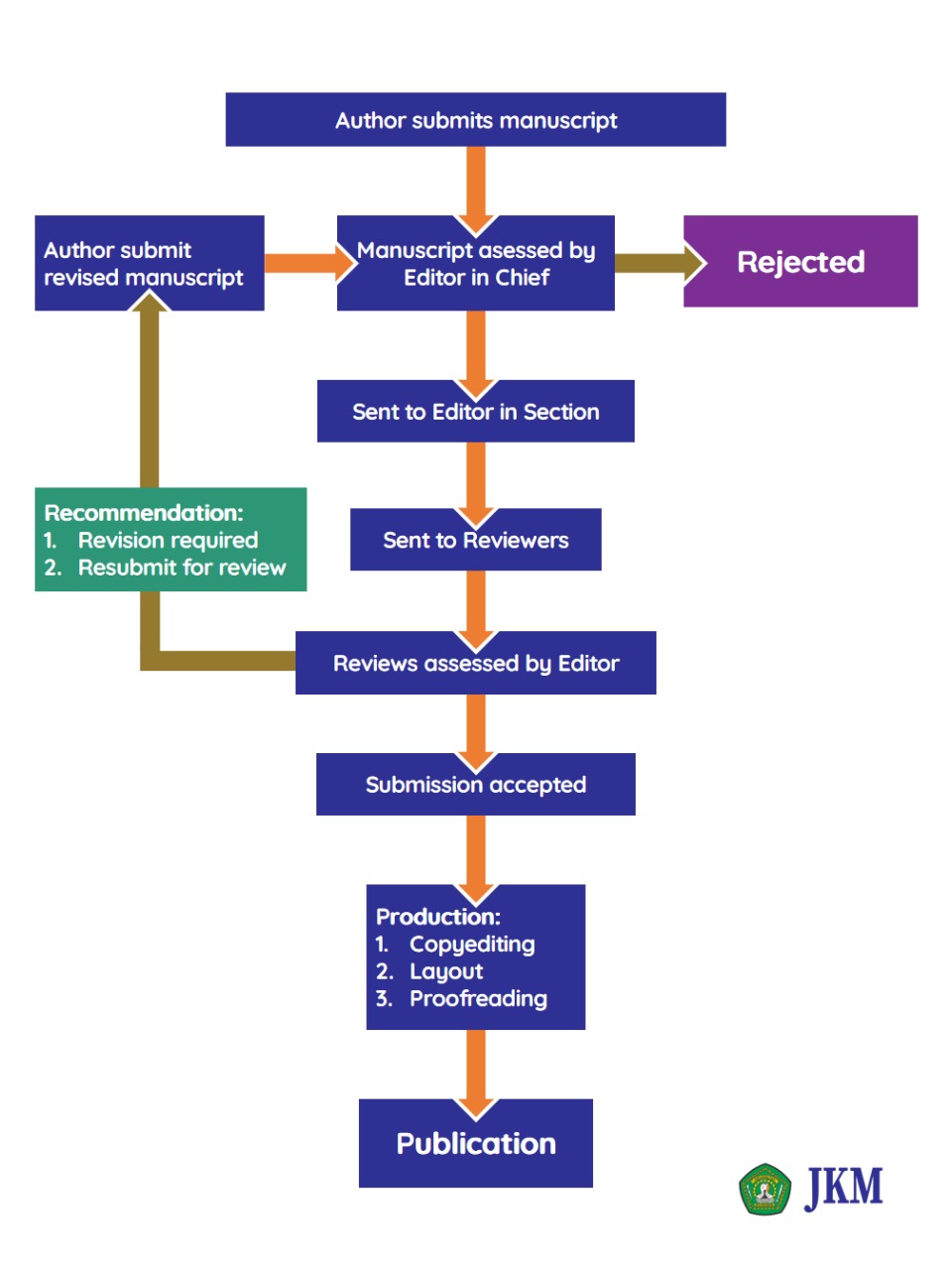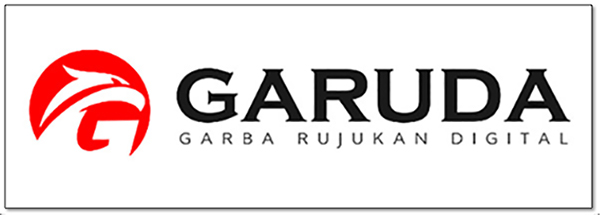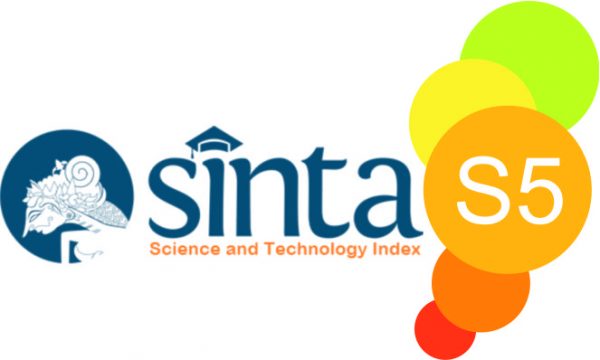- Focus and Scope
- Section Policies
- Peer Review Process
- Open Access Policy
- Archiving
- Pubication Ethics
- Publication Fee
Focus and Scope
Anatomy
Biochemistry
Child Health
Dermatology and Venerology
Internal Medicine
Histology
Neurology
Medical Education
Microbiology
Obstetrics and Gynecology
Opthalmology
Otorhynolaryngology
Pharmacology
Parasitology
Physiology
Physical medicine and rehabilitation
Public Health and Community Medicine
Pulmonology
Radiology
Surgery
Section Policies
Articles
Peer Review Process

Submission of Paper
The corresponding or submitting author the paper to the journal. This is usually via an online system.
Appraisal by the Editor-in-Chief (EIC)
The EIC check that the paper is appropriate for the journal and is sufficiently original and interesting. If not, the paper may be rejected without being reviewed any further
EIC Assigns an Editor Section
Some journals have Editors in section who handle the peer review. If they do, they would be assigned at this stage
Invitation to Reviewers
The handling editor sent invitations to individuals her or she believes would be appropriate reviewers. As responses are received, further invitations are issued, if necessary, until the required number of acceptances is obtained-commonly this is 2, but there are some variations between journals
Response to Invitations
Potential reviewers consider the invitation against their own expertise, conflict of interest and availability. They then accept or decline. If possible, when declining, they might also suggest alternative reviewers.
Review is Conducted
The reviewers set time aside to read the paper several times. The first read is used to form an initial impression of the work. If major problems are found at this stage, the reviewer may feel comfortable rejecting the paper without further work. Otherwise they will read the paper several more times, taking notes so as to build a detailed point-by-point review. The review is then submitted to the journal, with a recommendation to accept or reject it-or else with a request for revision (usually flagged as either major or minor) before it is reconsidered. Process of review takes about two weeks or a maximum of two months.
Journal Evaluates the Reviews
The handling editor considers all the returned reviewer before making an overall decision. If the review differ widely, the editor may invite an additional reviewers so as to get an extra opinion before making a decision.
The Decision is Communicated
The editor sends a decision email to the author including any relevant reviewer comments. Whether the comments are anonymous or not will depend on the type of peer review that the journal operates.
Next Steps
If accepted, the paper is sent to productions. If the article is rejected or sent back for either major or minor revision, the handling editor should include constructive comments from the reviewers to help the author improve the article. At this point, reviewers should also be sent an email or letter letting them know the outcome of theirs review. If the paper was sent back for revision, the reviewers should expect to receive a new version, unless they have opted out of further participant. However, where only minor changes were requested this follow-up review might be done at the handling editor.
Open Access Policy
This journal provides immediate open access to its content on the principle that making research freely available to the public supports a greater global exchange of knowledge.
Archiving
This journal utilizes the LOCKSS system to create a distributed archiving system among participating libraries and permits those libraries to create permanent archives of the journal for purposes of preservation and restoration. More...
Pubication Ethics
Background
Jurnal Kedokteran Mulawarman has to ensure that all published works within the journal follow ethical principles on academic publishing. It is therefore essential to set an ethical standard for all stakeholders to create a conducive environment and to avoid problems that may arise due to a certain conflict of interest. This document presents the policy of Jurnal Kedokteran Mulawarman on the respective publication ethics and malpractice statement as guidance for all stakeholders of the journal.
Publication and authorship
All persons listed as authors should qualify for authorship. Such authorship should be limited to persons who have contributed significantly to the conception, design, execution, data acquisition, data analysis or interpretation of the manuscript. All other persons who have participated in certain important aspects of the research but do not qualify as authors, then they should be acknowledged. Authorship is a responsibility of the corresponding author; he or she should ensure that all appropriate co-authors are included in the manuscript. The corresponding author, on behalf of all co-authors, should submit a form stating that all of them have seen and approved the final version of the manuscript and have agreed to submit it for publication. Request to add or remove author(s) or to arrange the author names of the accepted manuscript before it is published, must be sent to Chief Editor.
Responsibilities of authors
Authors are obliged to follow in peer review process set by Jurnal Kedokteran Mulawarman. Authors are responsible to provide original and accurate data (no plagiarism, no fraudulent data) concerning the manuscript submitted, and to provide the data when they are requested. The submitted manuscript should not be under consideration or accepted for publication elsewhere. Where parts of the data have been published elsewhere, the sources have to be acknowledged or cited accordingly. When reproducing data from other sources, proper citation and permission are required. Authors should ensure that studies involving human or animals are performed according to human or animal ethics and welfare. Any potential conflict of interest has to be declared including any financial, personal, or other relationships with other people or organizations related to their work that could affect their work. All sources of financial supports for the research project and study sponsor(s) (if any) along with their role in the research or study, should be disclosed in the Acknowledgement. Authors are requested to be willing to publish corrections, clarifications, retractions, and apologies when needed.
Responsibilities of reviewers
Reviewers are requested to assist in improving the quality of the manuscript through an objective review process within a scheduled period of time and to contribute to the decision-making process on the manuscript. If reviewers find any published or submitted content similar to that under review, the editor has to be informed. Reviewers should have no conflict of interest with respect to the research, the authors and/or the research funders. Any confidentiality of information supplied by the editor or author should be maintained.
Responsibilities of editors
Editors have the complete responsibility and authority to accept or reject an article. They should have no conflict of interest with regard to articles they accept or reject. Editors should be objective and fair when conducting their duties without making any discrimination on gender, ethnic, religion, political view or geographical origin of the authors. Editors should also accept manuscripts on the basis of academic merit and without commercial influence. The anonymity of reviewers should be preserved by editors.
Publishing ethics issues
Authors, reviewers, and editors should maintain the integrity of the academic record during the whole process of publication. Business needs should be precluded from compromising intellectual and ethical standards.
Human and animal ethics issues
Authors should ensure that studies involving human and animals are performed according to human and animal ethics and welfare. All experimental animals should be cared for and used in compliance with international, national or local regulations. The authors should state explicitly in a statement/letter including the name of ethics authority and the approval number, that experiments were approved by an authority concerning the compliance with human and animal ethics and welfare.
Publication Fee
Jurnal Kedokteran Mulawarman charges Rp. 350,000 for each published manuscript. Authors who undertake fast-track review will be charged an additional Rp. 250,000 for the review process.









